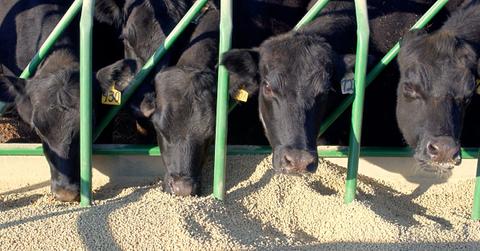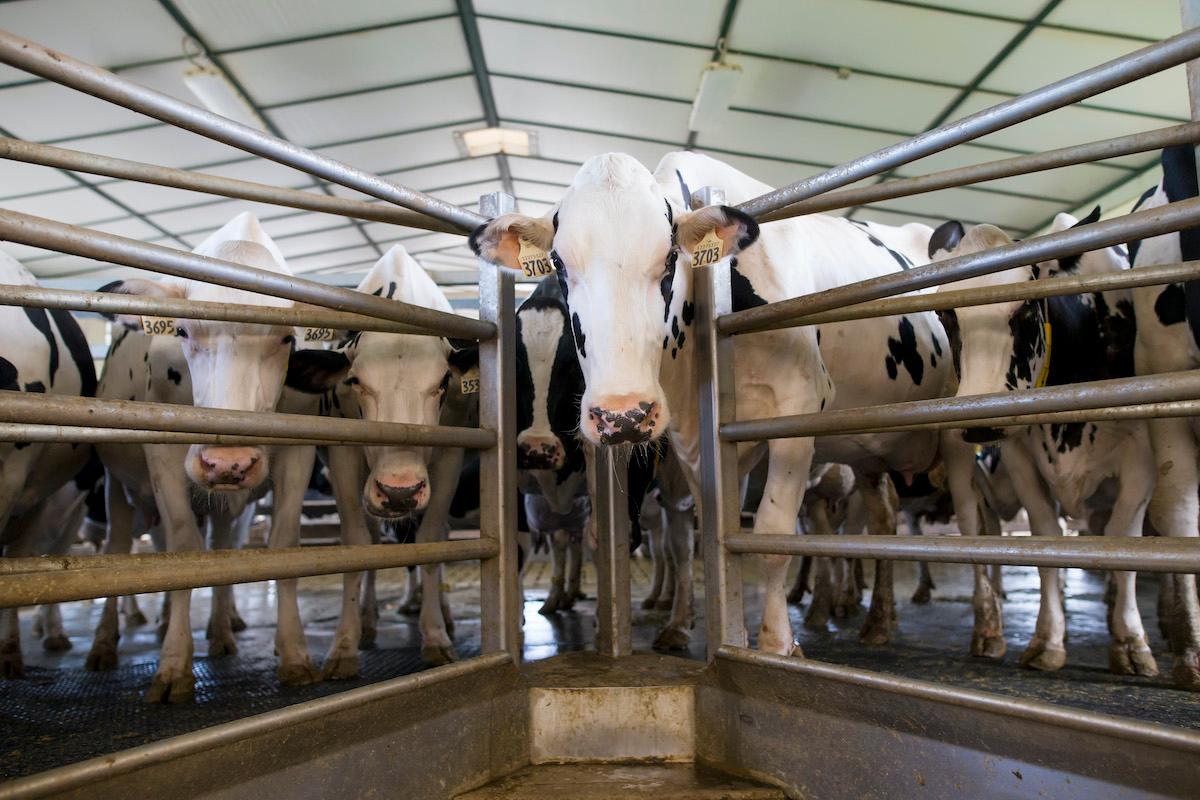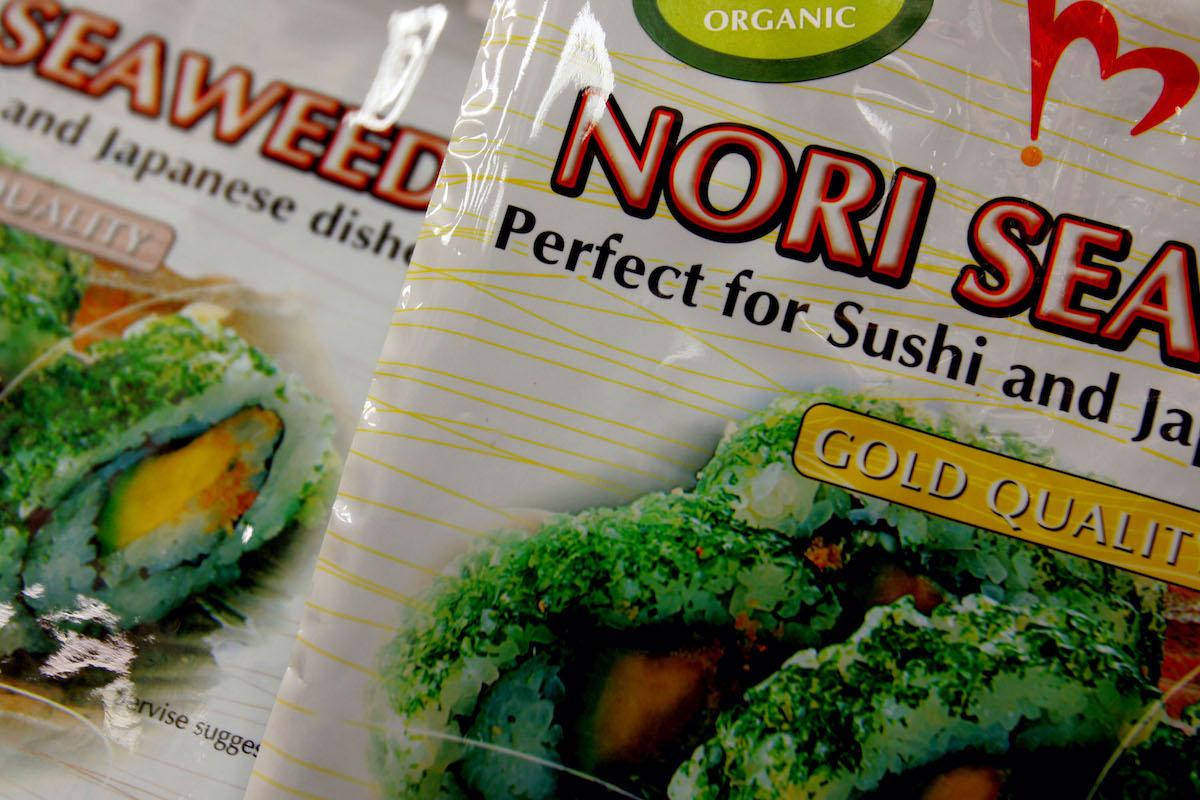Seaweed Reduces Cows' Methane Emissions, Study Finds — but There's a Better Solution
Updated March 18 2021, 11:44 a.m. ET

For years, cows have been blamed for the climate crisis, due to their high methane emissions. However, the real culprit isn't the cows — it’s the beef and dairy industry, which unnaturally breeds, raises, and slaughters cows by the billions, despite the process’ high environmental impact. While transitioning away from an animal-heavy diet would greatly mitigate climate change, some researchers have a new proposal: feed cattle seaweed, as it can reduce their methane emissions by 82 percent.
There has been talk of feeding cows plants like lemongrass and seaweed to potentially reduce their emissions for years now — and a recent study published in the journal Plos One, put seaweed (specifically red macroalgae) to the test.

Here’s how seaweed can reduce cow’s methane emissions.

For the study, the researchers, primarily hailing from the University of California, Davis, experimented with the diets of 21 Angus-Hereford beef steers, each aged about 8 months at the start of the study, from the Shasta Livestock Auction Yard in Cottonwood, Calif. Over the course of about five months, the steers had varying amounts of seaweed added to their usual feed.
The researchers used the GreenFeed system to measure the cows’ methane, CO2, and H2 gas emissions at various stages of the experiment. At the end, they found that adding seaweed to the cows’ diets caused them to belch out 82 percent less methane, as per The Guardian.
UC Davis' team has conducted similar research on several occasions, which resulted in similar findings, but this March 2021 study provides “sound evidence that seaweed in cattle diet is effective at reducing greenhouse gases and that the efficacy does not diminish over time,” study author Ermias Kebreab told The Guardian.
Unfortunately, at the end of the feeding trial, when the cows were about 13 months of age, they were sent to a Cargill slaughterhouse. The subjects were slaughtered for their meat, which was later analyzed, cooked, and served to a group of trial participants to analyze the taste. Participants found no difference in the steaks as compared to steaks from cows not part of the study.
Reducing meat and dairy consumption could fight the climate crisis more effectively.
Instead of trying to make the meat and dairy industry slightly less polluting, wouldn’t a more effective way to reduce the impact of the meat and dairy industry be to work to diminish it? A landmark 2018 University of Oxford study found that the most impactful way to reduce the animal agriculture industry’s emissions would be to support a shift away from eating meat and dairy.
According to the March 2021 study, feeding cows seaweed does reduce their methane output significantly; however, there are many other factors to consider. For one thing, growing and importing seaweed has an environmental impact that must be considered.
Additionally, feeding cows seaweed does nothing to reduce the water, electricity, and land use needed during the cows’ lifetimes; nor the pollution caused by their manure (which disproportionately affects Black, Brown, Indigenous, and low-income communities); nor the traumatic and dangerous working conditions that factory farm and slaughterhouse workers are subjected to; nor the potential these facilities hold to start more pandemics; nor the ethical implications of eating animal products.
The researchers say that more research needs to be done regarding adding seaweed to cattle feed, and if more farms begin adding seaweed to their cows’ diets, it will certainly be interesting to see how it affects emissions data. But in the meantime, lab-grown meat is in the works, and there’s never been a better time to try some of the delicious plant-based dairy and vegan beef options on the market, such as Beyond Meat and Impossible Foods.